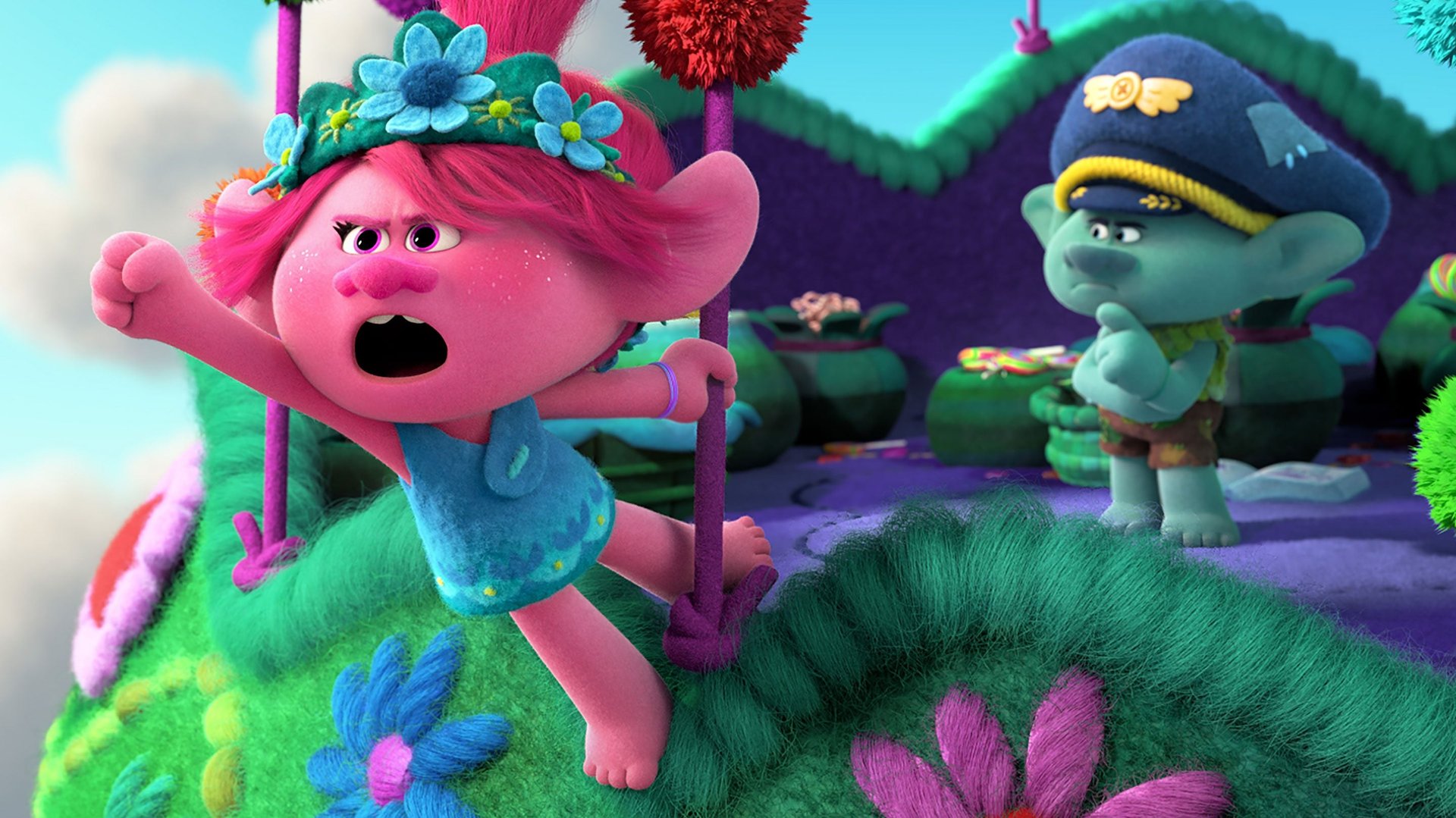The spat over “Trolls World Tour” foreshadows inevitable shifts in film distribution
Cinema historians may look back at an unlikely film as a crucial turning point in the history of the industry: Trolls World Tour.


Cinema historians may look back at an unlikely film as a crucial turning point in the history of the industry: Trolls World Tour.
The animated musical is at the center of a clash between Universal Pictures and AMC Theatres over the future of global film distribution. After theaters around the world closed, Universal announced it would release Trolls World Tour exclusively for digital rental, thus using the coronavirus pandemic as an opportunity to experiment with a release strategy many believed was inevitable anyway. According to Universal, that experiment was a resounding success.
In the three weeks since Trolls World Tour was released digitally, the film generated $95 million in revenue for Universal, the Wall Street Journal reported yesterday. It was reportedly downloaded 5 million times in the US and Canada.
“The results for ‘Trolls World Tour’ have exceeded our expectations and demonstrated the viability of PVOD [premium video on-demand],” NBCUniversal CEO Jeff Shell told the Wall Street Journal. “As soon as theaters reopen, we expect to release movies on both formats.”
Cue the mayhem.
AMC Theatres—the largest movie theater chain in the world with 11,000 screens and an indispensable asset for Hollywood studios—promptly freaked out about Shell’s boasting. In particular, it took issue with Shell’s wording that Universal will release movies in “both formats” (theaters and at-home viewing) in the future. Normally, theaters are granted a roughly 75-day exclusive window to screen films before they’re released digitally.
AMC president Adam Aron sent a strongly worded letter to Universal, declaring its 1,000 theaters around the world will no longer show any Universal movies:
We want to be absolutely clear, so that there is no ambiguity of any kind. AMC believes that with this proposed action to go to the home and theatres simultaneously, Universal is breaking the business model and dealings between our two companies. It assumes that we will meekly accept a reshaped view of how studios and exhibitors should interact, with zero concern on Universal’s part as to how its actions affect us.
The moratorium does not apply only to Universal, and will extend to any studio that “unilaterally abandons current windowing practices absent good faith negotiations between us,” Aron said. Even though other studios like Disney and Warner Bros. have also experimented with forgoing theatrical releases amidst the pandemic, Aron said that so far Universal is the only one to contemplate “a wholesale change to the status quo.”
Aron added AMC’s new policy “is not some hollow or ill-considered threat.”
Universal put out a statement in response, stating it was “disappointed” by Aron’s letter while attempting to clarify its position moving forward. The studio said it still plans to release movies directly to theaters, and would only go the premium video on-demand route “when it makes sense.” But the damage was already done.
The two companies will likely work something out, because they still need each other. Without a supply of new movies, theater chains like AMC would go out of business. (They’re already in serious financial trouble due to the virus.) And the studios need the theaters to help them maximize profits—especially on big-budget blockbuster films that potentially can make so much more money with a theatrical release than with digital-only distribution.
And while Universal might be thrilled with the digital returns on Trolls World Tour, they still pale in comparison to theatrical revenue. The first Trolls movie made $347 million worldwide. Even with only half the profits (studios and theaters split revenue 50/50), Universal still made $173.5 million on the film. While the margins are much better for studios on digital releases (they get to keep 80% of revenue, while the retailers get the rest), it’s taking from a much smaller pot. US law forbids the studios from owning their own theaters, and keeping all the revenue.
That’s why Universal delayed the theatrical release for the next Fast & Furious movie an entire year rather than release it on-demand right now. It will likely gross more than $1 billion worldwide when put in theaters. Half of that figure is certain to be far more than 80% of whatever the film would make digitally.
Universal also knows that the current conditions that made Trolls World Tour a digital success are unlikely to be repeatable for future movies. Millions of consumers are stuck at home and starved for new, family-friendly content. It’s unclear how successful a film like Trolls would be if released digitally under less ideal conditions.
What seems most likely in a post-coronavirus world is the film industry will fracture into two distinct distribution strategies, cementing a trend that was beginning even before the virus. Most small- to mid-budget films with a lower theatrical revenue ceiling could skip theaters and be released straight to homes. But big-budget event films are still way too lucrative to do the same. They will be the only type of movie still put into theaters.
The “eventification” of movies—blockbusters crowding out other movies from theaters—was already underway. Coronavirus may simply hasten and codify that shift into normal practice in the decades to come. Trolls World Tour showed Universal that there is a path forward for some films that doesn’t involve theaters. But it also underscored how badly the studios still rely on companies like AMC for all its other movies.